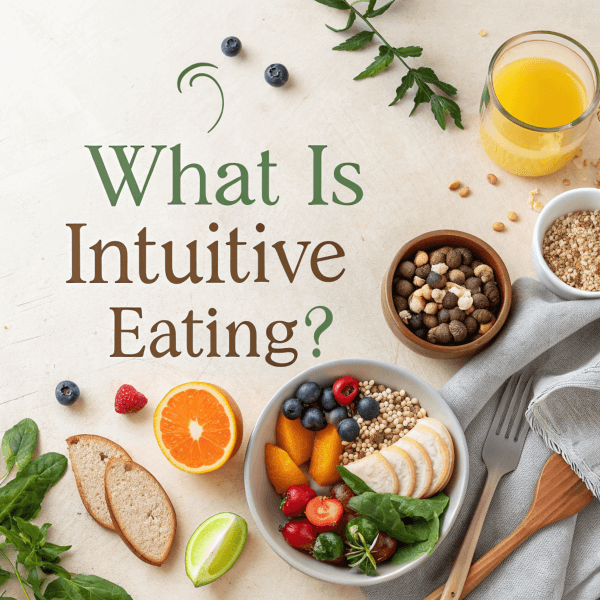Introduction
Your digestive system houses over 100 trillion microorganisms that directly impact everything from nutrient absorption to immune function. When this delicate ecosystem falls out of balance, the consequences ripple throughout your entire body, triggering bloating, irregular bowel movements, weakened immunity, and even mood disruptions. The solution lies in strategically introducing the best probiotics for gut health, live beneficial bacteria that restore microbial harmony and unlock measurable wellness improvements.
Recent clinical research reveals that specific probiotic strains can reduce digestive discomfort by up to 40% within just two weeks of consistent use. This comprehensive guide examines the most effective probiotics for gut health, backed by rigorous scientific studies, and provides clear recommendations for achieving optimal digestive wellness through targeted supplementation.
Understanding Probiotics for Gut Health
Probiotics are live microorganisms that confer health benefits when consumed in adequate amounts, as defined by the World Health Organization. These beneficial bacteria work by colonizing your digestive tract, crowding out harmful pathogens, and supporting the gut barrier that protects against toxins and inflammation.
The effectiveness of probiotics for gut health depends on three critical factors: strain specificity, colony-forming units (CFU), and survivability. Not all bacterial strains provide the same benefits—Lactobacillus rhamnosus GG excels at reducing diarrhea, while Bifidobacterium lactis supports regularity. CFU counts typically range from 1 billion to 50 billion per dose, though higher numbers don’t automatically mean better results.
Key Mechanisms of Action:
- Competitive Exclusion: Beneficial bacteria occupy receptor sites, preventing harmful microbes from establishing colonies
- Immune Modulation: Specific strains enhance gut-associated lymphoid tissue (GALT) function, strengthening immune responses
- Metabolite Production: Probiotics produce short-chain fatty acids that nourish intestinal cells and reduce inflammation
- Barrier Enhancement: Certain strains strengthen tight junctions between intestinal cells, preventing leaky gut syndrome
The most effective probiotics for gut health combine multiple complementary strains that work synergistically to address different aspects of digestive wellness.
7 Science-Backed Benefits of Probiotics for Gut Health
1. Enhanced Digestive Regularity
Clinical trials demonstrate that specific probiotic strains significantly improve bowel movement frequency and consistency. Bifidobacterium lactis HN019 reduced transit time by 20% in constipated adults, while Lactobacillus rhamnosus GG decreased diarrhea duration by 25% in multiple studies.
2. Strengthened Immune Function
Approximately 70% of your immune system resides in the gut. The best probiotics for gut health enhance this immunity by increasing secretory IgA production and activating immune cells. Meta-analyses show 23% fewer respiratory infections in individuals taking targeted probiotic supplements.
3. Reduced Inflammatory Markers
Chronic gut inflammation contributes to systemic health issues. Probiotics for gut health lower pro-inflammatory cytokines like TNF-alpha and interleukin-6 while increasing anti-inflammatory compounds. This translates to measurable improvements in digestive comfort and overall wellness.
4. Improved Nutrient Absorption
Healthy gut bacteria produce enzymes that break down complex carbohydrates, synthesize B vitamins, and enhance mineral absorption. Supplementing with the best probiotics for gut health can increase folate levels by up to 30% and improve calcium bioavailability.
5. Balanced Gut Microbiome
Modern diets and antibiotics disrupt microbial diversity. Quality probiotics for gut health restore beneficial bacteria populations, creating an environment where healthy microbes thrive while pathogenic species decline.
6. Enhanced Gut Barrier Function
The intestinal barrier prevents toxins from entering systemic circulation. Specific probiotic strains strengthen tight junctions and increase mucus production, reducing intestinal permeability by measurable amounts in clinical studies.
7. Optimized Digestive Enzyme Activity
Probiotics for gut health enhance the production and activity of digestive enzymes, improving the breakdown of proteins, fats, and carbohydrates. This leads to reduced bloating, gas, and digestive discomfort after meals.
Best Probiotics for Gut Health – Top 5 Products
1. Culturelle Digestive Daily – Best Overall
Key Strain: Lactobacillus rhamnosus GG (10 billion CFU)
Culturelle stands as the gold standard among probiotics for gut health, featuring the most researched probiotic strain in the world. With over 200 clinical studies supporting its efficacy, L. rhamnosus GG demonstrates exceptional survival through stomach acid and reliable colonization in the intestines.
Proven Benefits:
- Reduces antibiotic-associated diarrhea by 64%
- Improves IBS symptoms within 4 weeks
- Enhances immune function and reduces infection risk
- Shelf-stable formulation requires no refrigeration
Pros: Extensive research backing, consistent potency, affordable price point.
Cons: Single-strain formula may not address all gut health needs.
2. Garden of Life Dr. Formulated Probiotics – Best Multi-Strain
Key Strains: 16 diverse strains, including Lactobacillus acidophilus and Bifidobacterium lactis (50 billion CFU)
This comprehensive formula combines the best probiotics for gut health in a single capsule, targeting multiple aspects of digestive wellness. The diverse strain profile ensures broad-spectrum support for various gut health concerns.
Proven Benefits:
- Supports digestive regularity and comfort
- Enhances immune system function
- Includes prebiotic fiber for enhanced probiotic survival
- Raw, whole-food ingredients with no artificial additives
Pros: Extensive strain diversity, high potency, organic certification.
Cons: Higher price point, requires refrigeration.
3. Align Probiotic Supplement – Best for IBS
Key Strain: Bifidobacterium longum 35624 (1 billion CFU)
Align features a patented strain specifically researched for irritable bowel syndrome relief. This targeted approach makes it one of the best probiotics for gut health in individuals struggling with IBS symptoms.
Proven Benefits:
- Reduces IBS symptom severity by 40% in clinical trials
- Improves abdominal pain and bloating
- Supports healthy bowel movement patterns
- Gastroenterologist-recommended formula
Pros: IBS-specific research, consistent results, easy-to-swallow capsules.
Cons: Single strain may not provide comprehensive gut support.
4. Renewlife Ultimate Probiotics – Best High-Potency
Key Strains: 12 targeted strains including Lactobacillus plantarum and Bifidobacterium breve (50 billion CFU)
For individuals requiring intensive gut health support, this high-potency formula delivers therapeutic doses of the best probiotics for gut health. The delayed-release capsules ensure maximum survival and effectiveness.
Proven Benefits:
- Restores gut balance after antibiotic use
- Supports a healthy inflammatory response
- Enhances digestive enzyme activity
- Promotes regular bowel movements
Pros: High CFU count, delayed-release technology, comprehensive strain selection.
Cons: May cause initial digestive adjustment, and premium pricing.
5. VSL#3 – Best Therapeutic Formula
Key Strains: 8 specially selected strains (450 billion CFU)
VSL#3 represents the most potent option among probiotics for gut health, designed for individuals with severe digestive challenges. This medical-grade formula requires healthcare provider guidance but delivers unmatched therapeutic potential.
Proven Benefits:
- Clinically proven for ulcerative colitis management
- Reduces pouchitis recurrence by 85%
- Supports gut barrier restoration
- Hospital-grade manufacturing standards
Pros: Medical-grade potency, extensive clinical research, therapeutic efficacy.
Cons: Requires refrigeration, prescription recommendation needed, and high cost.
Choosing the Right Probiotics for Gut Health
Selecting the best probiotics for gut health requires matching specific strains to your individual needs. Strain specificity proves crucial—what works for diarrhea may not address constipation effectively.
Key Selection Criteria:
- Targeted Strains: Choose formulas with research-backed strains for your specific concerns
- CFU Count: Start with 10-20 billion CFU for general wellness, higher for therapeutic needs
- Survivability: Look for enteric coating or delayed-release technology
- Storage Requirements: Consider whether refrigeration fits your lifestyle
- Third-Party Testing: Verify potency and purity through independent certification
Condition-Specific Guidance:
- IBS/Digestive Discomfort: Bifidobacterium longum, Lactobacillus rhamnosus
- Antibiotic Recovery: Multi-strain formulas with high CFU counts
- Immune Support: Lactobacillus casei, Bifidobacterium lactis
- General Wellness: Broad-spectrum formulas with 10-15 strains
Dosage and Usage Guidelines
Optimal Timing: Take probiotics for gut health 30 minutes before meals or with light food to protect against stomach acid. Consistency matters more than perfect timing—establish a daily routine you can maintain.
Starting Protocol: Begin with lower CFU counts (5-10 billion) for the first week to allow your digestive system to adjust. Gradually increase to the full recommended dose to minimize potential side effects.
Duration: Most clinical benefits from probiotics for gut health appear within 2-4 weeks of consistent use. Continue supplementation for at least 8-12 weeks to establish lasting microbial changes.
Storage: Follow manufacturer guidelines strictly—heat and moisture can kill beneficial bacteria, rendering supplements ineffective.
Food Sources vs Supplements
While fermented foods provide natural probiotics for gut health, supplements offer several advantages for therapeutic applications:
Fermented Food Benefits:
- Diverse bacterial communities
- Additional nutrients and prebiotics
- Cost-effective long-term option
- Natural matrix enhances survival
Supplement Advantages:
- Standardized CFU counts
- Strain-specific targeting
- Convenient daily dosing
- Research-backed formulations
Top Fermented Sources: Kefir (10-34 billion CFU per cup), sauerkraut (variable counts), kimchi, miso, and high-quality yogurt with live cultures.
The best probiotics for gut health strategy combines both approaches—using supplements for targeted therapeutic effects while incorporating fermented foods for ongoing maintenance and dietary diversity.
Safety and Side Effects
Probiotics for gut health demonstrate excellent safety profiles for most healthy adults. Initial mild bloating or gas typically resolves within 1-2 weeks as your microbiome adjusts.
Precautions: Individuals with compromised immune systems, severe underlying illness, or damaged intestinal barriers should consult healthcare providers before starting probiotic supplementation.
Rare Concerns: In extremely rare cases, probiotics may cause bloodstream infections in critically ill patients with central venous catheters or severe immunocompromise.
Conclusion: Transform Your Gut Health Today
The best probiotics for gut health offer a science-backed pathway to digestive wellness, immune enhancement, and overall vitality. Start with a high-quality, research-supported supplement like Culturelle Digestive Daily or Garden of Life’s multi-strain formula, maintain consistent daily use, and monitor your body’s positive response over the coming weeks.
Your gut microbiome shapes your health in profound ways—invest in the best probiotics for gut health and experience the transformative power of optimal digestive wellness. Begin your journey today and share this guide with others seeking natural solutions for lasting gut health improvements.




